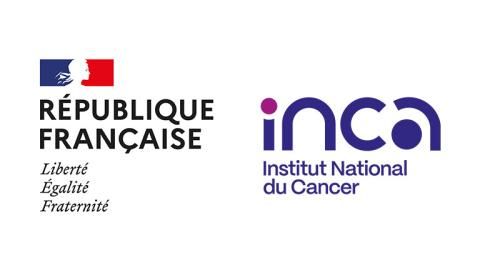PROSPECT
Co-led by Professor Andrew Chan (Massachusetts General Hospital) and Dr Yin Cao (Washington University in St. Louis).At a glance
The challenge
Tackling the early-onset cancers challenge since 2024, team PROSPECT is investigating the global rise of colorectal cancers in younger adults.
The team will employ a disruptive and interdisciplinary approach – spanning epidemiology, laboratory and clinical intervention studies – to understand the underlying causes and mechanisms driving the development of early-onset colorectal cancers. Armed with this new insight, PROSPECT aims to develop and test innovative strategies to help prevent the disease in future generations.
Why early-onset cancers?
Hear Dr Yin Cao and Professor Andrew Chan, co-team leads of PROSPECT, discuss their approach to the early-onset cancers challenge - and why addressing it is so important.Team and leadership
PROSPECT is co-led by:
The team brings together multidisciplinary researchers from five different countries, including experts in population sciences, clinical trials, behavioral science, genomics, cancer biology, immunology, computational biology, biochemistry and nutrition. The team also includes clinicians who care for patients with or at-risk of cancer and patient advocates, who will ensure that its studies are inclusive and address the needs of diverse communities.
Tackling the early-onset cancers challenge
Although recent decades have seen a decrease in the overall incidence of colorectal cancer, there has been an alarming rise in the number of early-onset colorectal cancer (EOCRC) cases diagnosed in people under 50 in countries worldwide. Concerningly, in many countries, the risk of developing EOCRC is increasing with each new generation. In the U.S., for example, people born circa 1990 have double the risk of developing colon cancer and quadruple the risk of rectal cancer compared to those born circa 1950. This trend is likely driven by changing exposures to environmental and lifestyle factors over an individual’s lifetime, specific to their ‘birth cohort’.
Although some progress has been made in linking certain factors to an increased risk of EOCRC, such as obesity, sedentary behaviours and poor diet, many questions remain. It is unclear whether these factors are causal and, if so, what are the underlying mechanisms.
Team PROSPECT aims to gain a deeper understanding of the origins of disease, using a multi-pronged approach, moving from population studies to interrogating molecular mechanisms to identify the pathways, risk factors and molecules that contribute to the development of EOCRC. They hope to use this knowledge to inform effective new preventative strategies, ultimately reducing the burden of the disease in future generations.
The team has three overarching objectives:
To identify risk factors associated with EOCRC
To identify the risk factors that contribute to the rising incidence of EOCRC, the team will leverage prospective data from more than 15 diverse cohorts from across the UK, US, multiple countries in Europe, and Mexico. This extensive population study from nearly 10 million people will encompass over 2,700 EOCRC cases.
The researchers will apply state-of-the-art bioanalytical techniques including exposomics, microbiomics, and epigenomics on blood and tissue samples to detect changes that occur in the body over time and to rigorously identify differences between people who develop EOCRC and those who do not. This comprehensive approach will enable the team to examine the biological effects of exposure to established risk factors like obesity and poor diet, as well as search for novel risk factors that may also contribute to a person’s chances of developing EOCRC.
To characterise the underlying mechanisms of causal risk factors
The researchers will then leverage innovative organoid and life course animal models to understand how specific risk factors identified from human data increase susceptibility to, or drive the progression of, EOCRC over time. They will use machine learning to integrate multi-omics data and reconstruct the underlying biological pathways driving cancer development. This approach will allow them to detail the impact of each risk factor across the lifespan.
To develop precision prevention strategies
PROSPECT aims to not only unravel the causes of EOCRC, but also identify new strategies to prevent its occurrence. The team plans to conduct precision prevention trials in the US and UK, to explore whether pharmacologic or dietary interventions in young adults at increased risk of EOCRC can disrupt the specific molecular pathways involved. Additionally, the team will conduct community risk assessment trials in the UK and India to determine whether knowing your EOCRC risk influences a person’s motivation to take proactive steps to reduce their chances of developing the disease.
Looking ahead
From identifying the causes and mechanisms contributing towards the development of EOCRC to innovative clinical trials and interventions aimed at reducing the burden of the disease, PROSPECT’s ultimate goal is to combat the alarming increase and prevent this disease in younger generations. In addition, PROSPECT’s pioneering, integrated framework aims to shed light on risk factor discoveries for many other cancers that are also increasing among younger generations.

Plain language summary
More and more people under 50 years of age are being diagnosed with bowel (or colorectal) cancer in at least 18 countries around the world. These cases are called early-onset colorectal cancer (EOCRC), and each new generation faces higher risks of developing this cancer type.
Research has uncovered a few drivers of this alarming trend, including obesity and poor diet. However, prior studies usually assessed the impact of these factors at a single time point in adulthood. There remains a pressing need to further the understanding of existing risk factors throughout an individual’s lifetime, as well as to identify new risk factors.
Team PROSPECT will study factors contributing to EOCRC by analysing samples from diverse populations worldwide. They will look at known risk factors (such as obesity and poor diet) and new risk factors (including environmental and social factors). In laboratory experiments, they’ll investigate how these factors lead to cell changes linked to EOCRC.
By understanding the complex network of risk factors that lead to EOCRC, PROSPECT aims to develop new methods to assess risk and prevent colorectal cancer in individuals under 50 years of age. The team will test these methods in trials in the clinic and in communities.




